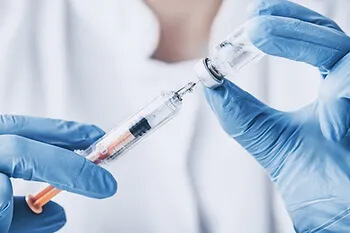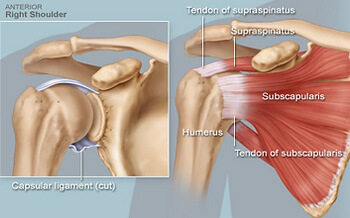That age old question in which the answers seems to be becoming increasingly more difficult to answer. We have looked over the research and tried to simply things for those who are unsure about what to do with their shoulder.
SUMMARY:
- A rotator cuff (RC) tear is a common cause of pain and disability among adults.
- There are multiple risk factors for RC tears, but most are down to overactivity of the shoulder joint decreased conditioning of the shoulder complex, which comes with age.
- Most common in individuals over the age of 40 with linear increase in incidence as we get older.
- A well-constructed strength program and active lifestyle is pivotal for preventing RC tears.
- Diagnosis of a RC tear is done through first a physical examination, which is then followed by a positive finding on medical imaging.
- To two main ways of treating a RC tear is either through conservative management with your physiotherapist or down the surgical route, which is also then followed by physiotherapy rehabilitation.
- There is evidence for both choices and the decision between the two is down to many factors and the well-trained and experienced physiotherapists at Praxis Physiotherapy can greatly assist you in making the decision!
ANATOMY
The rotator cuff (RC) muscles are a group of four muscles that act as rotators and stabilisers of the shoulder. These are supraspinatus, infraspinatus, subscapularis and teres minor. Supraspinatus is the most frequently torn of this group.
These muscles work to help raise and rotate your arm for everyday activities such as putting on a t-shirt, combing your hair or putting away dishes on a high shelf. In sport the cuff works as a dynamic stabilisers of the shoulder to help cope with the forces associated with overhead activities such as swimming, tennis serving, throwing or weight lifting. Simply put, the cuff aids in keeping the ball (head) of your upper-arm bone (humerus) in your shoulder socket with movement.
CAUSES, SYMPTOMS & RISK FACTORS
The cause of RC tears is multifactorial. Degeneration (which comes with age), impingement and overload, may all contribute in varying degrees to the development of rotator cuff tears.

This disease is primarily of middle aged and older patients with observational data reveals a nearly linear increase in the frequency of rotator cuff tears with age. Pain with movement and function is one of the biggest symptoms of a rotator cuff tear. However, it is important to know that a sizeable portion of rotator cuff tears are actually asymptomatic and don’t cause the person any pain or discomfort! A study by Minagawa and Yamamoto in 2013 found that in a screening of 664 village residents, 147 subjects had RC tears on a medical imaging screening. Surprisingly 65% of them had no symptoms at all and didn’t have any shoulder complaints.
Why is this important? Well if you end up going to a GP and he/she send you for a scan and finds a torn RC, most will assume that it is the cause of them pain, but as seen in the study this is definitely not always the case. Before it can be decided whether the RC tear is the causes of the pain there are numerous structures in and around the shoulder that have to be examined and “crossed off the list” of possible causes of the pain. This can only be done by a physical examination of the shoulder which can be done by an experienced physiotherapist.
TREATMENT: CONSERVATIVE OR SURGICAL
The decision of treatment for rotator cuff tears is dependent on many factors. The current literature on the topic states three main modalities of treatment for a symptomatic RC tear; these being:
- Use of a corticosteroid injection
- Physiotherapy intervention
- Surgical management
The use of corticosteroid injections is commonly recommended by GP’s for treatment of pain in RC tears. They may provide pain reduction in some patients but is important that you talk to your GP about both the pro’s and con’s of these injections as the current evidence does support that these injections do in fact have a detrimental effect on tendon health and strength.
In addressing whether a surgical or conservative route should be taken, there is currently very limited literature and evidence to support one modality over the other. A study by Lambers and van Raay in 2015 looked at comparing the effectiveness of surgical versus conservative management of 56 patients with rotator cuff repairs. They followed up over a year and the results showed no significant difference in pain and disability in favour of either modality.
However, a study by Moosymayer and colleagues collected data from 103 patients with RC tears, with half having surgical repairs and half being treated conservatively with physiotherapy. They were followed up over 10 years at 6 months, 1, 2, 5 and 10 year marks. The first three follow up saw no difference in results between both modalities. However at the 5 and 10 year follow ups they found preferable outcomes for surgical repair over conservative treatment, with a small proportion of the conservative management patients opting for surgical treatment at the 5 and 10 year marks due to decreased satisfaction in results from conservative management.

The big answer for the whether conservative management or surgical management is best for a rotator cuff tear………….
As always – it is a case by case decision!! There is no definitive evidence for supporting one over the other generally speaking! However, it is vitally important to note that each option comes with their own pros and cons. Furthermore, it is important to remember that just as every person is different, each case of rotator cuff tear is different. Young vs old, acute vs degenerative RC tear, current and desired future function, pain levels, radiographic findings, previous history of shoulder trauma and the patient’s wishes are only some of the questions that aid in the decision process. The best way to decide would be to contact your physiotherapist and have chat about both options and what the goals of rehab are so that a tailored plan can be developed WITH you.
We here at Praxis Physiotherapy pride ourselves on providing the best possible treatment and advice on all things musculoskeletal and are more than happy to assist, and advise you on your decision regarding rotator cuff tears. We also work closely with a number of excellent orthopedic surgeons specialising in shoulders in Brisbane to ensure you get the best possible advice and intervention if you require it. So stop waiting and suffering, give us a ring and book an appointment on (07) 3102 3337 or simply book online
Till Next Time, Praxis What You Preach
The Praxis Team
PREVENT | PREPARE | PERFORM

